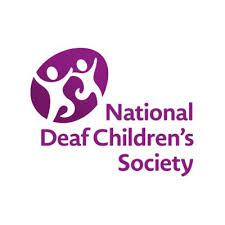Rachel O’Neill and Rob Wilks will share findings from their recent research on deaf education in Scotland and Wales.
Aims
Sign language recognition has the potential to achieve transformative equality (Wilks, 2020) in relation to the everyday experiences of deaf people. The importance of recognising minority languages is well documented (Meulder, Murray and McKee, 2019; Muhlke, 2000). There has been insufficient research about the impact of sign language recognition on deaf children, their families, and schools.
In Scotland, the BSL (Scotland) Act was passed in 2015, while in Wales the new school curriculum includes BSL.
Their first report, The impact of the British Sign Language (Scotland) Act 2015 on deaf education (O’Neill & Wilks, 2021) contributed to the Scottish Government’s review of the first national BSL plan. The follow-up report: Deaf Education in Scotland and Wales: Attitudes to British Sign Language in deaf education compared to Gaelic and Welsh (Wilks & O’Neill, 2022), compares the impact of BSL legislation and curriculum change on deaf young people’s education in Scotland and Wales and explores the different approaches to minority language revitalisation in education systems.
Methods
21 stakeholders were interviewed across Scotland and Wales to explore whether their respective approaches have led to the inclusion of BSL in deaf education.
Main findings
BSL is included in deaf education at the government level, but on the frontline – in schools – it is not. It was clear that the language rights of deaf children were recognised more by stakeholders with a national remit, whereas teachers of deaf children remain influenced by medical perspectives and see BSL as a communication tool rather than as a language. The teachers often had some trepidation about how the changes to the wider use of BSL would affect them. In early years education, there is also a marked gap in the provision of BSL for families with young deaf children between the ages of 0 and 5, despite being the formative years for language acquisition.
Conclusions
The revitalisation of Welsh and Gaelic has taken place over the past 50 years in Wales and Scotland. Community-based approaches such as bilingual playgroups could be applied successfully to the revitalisation of BSL. The two parts of this research project together suggest that governments could do much more to support BSL as a living and fully accessible language.
Presenters
Rachel O’Neill is a senior lecturer in deaf education at Moray House School of Education and Sport at the University of Edinburgh.
After teaching deaf children and young people in Greater Manchester for 25 years, she moved to Edinburgh in 2006. Since then she has been teaching the teachers of deaf children and researching deaf education topics.
For the past five years, she has co-edited Deafness & Education International. She has worked with Rob Wilks on the effects of the 2015 BSL (Scotland) Act, particularly on the education system for deaf children and their families.
Dr Rob Wilks is a non-practising solicitor and since qualification, has advised over 2,000 members of the deaf community on a range of legal issues, mostly employment and discrimination.
He is currently a Lecturer in Professional Law at Cardiff University teaching business law and practice on the Legal Practice Course.
Rob was awarded his doctorate in 2020 by the University of Leicester examining the title: ‘Making equality law work for Deaf people.’
He has recently turned his attention to deaf education, and recently published a report with Rachel O’Neill comparing Welsh- and Gaelic-medium education with that of BSL, putting forward recommendations on how to ensure BSL is taught as part of the new Curriculum for Wales. He has an interest in sign language recognition and is developing Deaf Legal Theory as a new perspective in legal jurisprudence.
Where?
Hybrid: Deaf Action and Zoom
The talk will be based at Deaf Action and will be recorded live. The Blackwood Bar will be open.
Please register because there is a limit to the number of tickets, and if you wish to connect remotely, you will receive the zoom link after registration.




